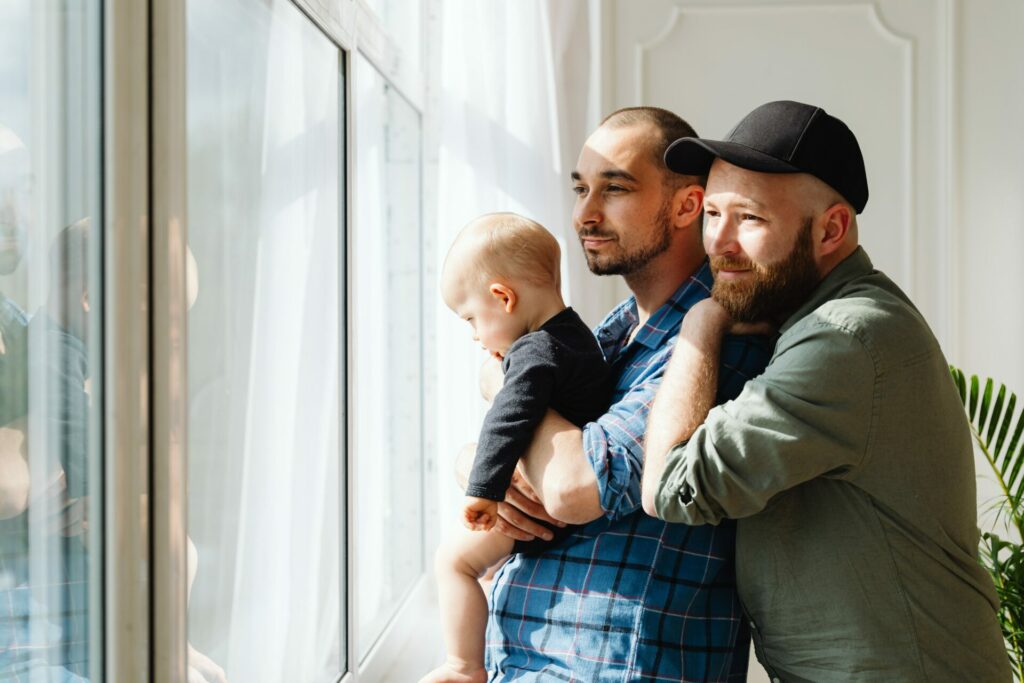The law is changing but is it changing too slowly?
In partnership with A City Law Firm.

As we move past LGBT+ History Month, we look forward to Pride in June. It’s a time to celebrate the contributions of the LGBT+ community to society and to recognise the progress that has been made in the fight for LGBT+ rights.
It’s also an important time to reflect on the work that still needs doing to achieve full equality and justice. Pride Month is a time to celebrate, honour, and express pride in being LGBT+ and for us as their allies.
For the last 15 years, A City Law Firm has been rejoicing, supporting, and advocating for changes in the law and public perception. Our founder, Karen Holden, has been seeking equality for the community for nearly 25 years. As a direct result she was among 100 women awarded the ‘Freedom of the City’ in 2018.
How far have we come? How much further do we need to go?

World-Cup Highlights
There has been a shift in the perception of LGBT+ people. However, the World Cup highlighted that there is still so much to do. The public outcry regarding One Love arms bands in particular shone a real spotlight on the problem. There was also a real show of support from teams and fans alike which helped raise awareness. But while the World Cup has seen a great step forward in terms of visibility and acceptance, more needs to be done to ensure that changes are permanent and that discrimination against the LGBT+ community is eliminated.

LGBT+ Legal History
The UK achievements to date provide significant positivity:
1. The Gender Recognition Act (GRA) 2004 allows transgender people to receive legal recognition of their gender. This is done by obtaining a Gender Recognition Certificate (GRC). However, applicants “must provide medical evidence of a diagnosis of gender dysphoria.” They must also show evidence of treatment they’ve received, they’ve been living as their preferred gender for two years and will do so permanently. Many find the need for medical diagnosis unfair. It was part of a 2020 consultation to reform the GRA but was not picked up by the UK government.
2. The Equality Act 2010 protects people from discrimination based on gender identity, sexual orientation, and perceived orientation.
3. The Marriage (Same Sex Couples) Act 2013 allowed same-sex couples to marry.
4. The 2018 LGBT Action Plan sets out a range of measures to increase LGBT+ rights in the UK.
5. The introduction of regulations into Relationships and Sex Education in 2019. This requires primary and secondary schools to teach LGBT+ inclusive education.
6. The UK’s Criminal Justice Act 2003 and The Hate Crime and Public Order Act 2021 in Scotland. Both make it a criminal offence to incite/carry out a hate crime based on sexual orientation or gender identity.
9. The Human Fertilisation and Embryology Act 2008. Since 6 April 2009 (at the time of fertilisation, not birth) lesbians in the UK are treated equally in law to heterosexual women when it comes to giving birth after sperm donation.
10. The Human Fertilisation and Embryology Act 2008 (Remedial) Order 2018. This is a remedial order made under section 10 of the Human Rights Act 1998. It allows single parents to have a child through surrogacy.
Battle for reform continues
We are fighting issues that have been long debated, with the hope of making our laws better. We continue to represent clients and take on cases that can readdress the laws. But we need to keep up the public conversations to address the imbalance.

Modern families
The legal framework around surrogacy in the UK needs to modernise and provide greater protection for both surrogates and intended parents. One of the most pressing issues is the need for better regulation of the industry, with particular emphasis on the surrogacy agreement, pre-birth orders, and the rights of the surrogate mother. Additionally, the UK government is considering that intended parents have the same parental rights as biological parents. The government is also looking into ways to better support surrogates and intended parents during the surrogacy process. This includes increasing the financial support available to surrogates.
Currently, UK surrogacy law is complex and outdated. In the UK, surrogacy cannot be advertised and commercialised and you cannot pay a surrogate. Exemptions relate only to non-profit agencies and reasonable expenses payable to the surrogate. Surrogacy arrangements are not legally binding, and a lawyer cannot advise on this.
There is also no legal recognition for the intended parents, meaning the surrogate still has parental responsibility for the child at birth. This means that intended parents must apply for a parental order after the birth to gain legal recognition. This can only be done six weeks after birth so there is always a concern about her changing her mind.
This took place in 2020 when after an 18-month battle A City Law Firm was able to secure the UK intended parents full parental rights and custody of their child when the surrogate and her husband had denied access and refused to sign the parental order. The law is there to protect the children and the courts will choose what they think is in the child’s best interests.
The consultation period for the UK surrogacy reform paper ended in October 2019, and the Law Commission is now considering the responses before making recommendations for legal reform. The Growing Families show comes to London this year where we will continue to educate and support modern families be able to thrive through surrogacy.
Surrogacy is currently illegal in many parts of Europe, including Germany, France, Italy, and Spain. However, LGBT+ couples can access surrogacy services in the UK, Canada, Argentina, and the United States. In addition, some countries, such as Greece and the Czech Republic, offer limited access to surrogacy services for LGBT+ couples and with places emerging in Cyprus and Mexico. Parental Orders can be applied for and obtained in the UK following international surrogacy arrangements which are often considered the safest means for UK intended parents.

Why we will do to fight for change?
We believe equality is a right and we want the LGBT+ community to feel supported by the law. The way we do this is to challenge and help modernise the law by pushing for changes. It’s what this firm is all about.
In one case (Re B (Adoption: Surrogacy and Parental Responsibility) [2018]) we helped a single non-genetically linked intended parent who was stranded overseas – the surrogacy route was no longer open as single UK surrogacy was not then lawful. We secured travel back to Britain and an adoption order was obtained.
In another case (N (Surrogacy: Enduring Family Relationship; Child’s Home) [2019] EWFC 21) two UK-intended parents separated during the surrogacy journey/parental order, meaning our client would not have had any parental rights, which would have been devastating. We managed to gain both UK intended parents full parental rights by convincing the UK courts that despite being separated the children were part of both homes.
Transgender Rights
Our case representing Freddie McConnell, a trans man who gave birth to his own child, was testimony to the law failing to follow through. You can legally change gender, but your child’s birth certificate won’t show your correct legal gender. The court’s appeal process was exhausted. Transgender people suffer from discrimination and prejudice in the UK, with research showing that they have poorer mental health than the general population.
In 2016 the Women and Equalities Committee published a report on transgender equality and there was a consultation on the Gender Recognition Act in 2020. The report contains a magnitude of recommendations concerning a wide range of equality issues that affect transgender people. However, the lack of engagement by the UK government has since caused concern for this legislation.
‘Conversion therapy‘
It is apparent that the UK still has a long way to go when it comes to discriminatory attitudes against those who identify as LGBTQ+. Although the Equality Act 2010 protects those against discrimination there is still room for change and reform. For example, there is an archaic view that ‘conversion therapy’ is needed to ‘cure’ someone of their sexuality. This clearly has a detrimental impact on its receivers and the law must change to keep up with the needs of modern-day society and outlaw such barbaric and ignorant practices. ‘Conversion therapies’ ought to be banned in the UK. Without banning ‘conversion therapies’, members of society are at risk of emotional and psychological harm purely for being themselves.
Recent debates are taking place and reform is needed – how far should and can an employer for example protect their employees out of work; when is it discriminatory and hate as opposed to opinion; we have an entitlement to freedom of speech but at what cost and to who; safe guarding online and social media bullying is extensive and companies are looking at when they must take down posts immediately – all of these new world issues need to be addressed if we are to make the world a genuinely safe and equal environment to work and live.

No fault divorce
From April 2022, No Fault divorce has radically changed the route for many people to part ways, without the legal naming and shaming it had previously required. However, whilst this form of divorce can be less costly, many forget to address their finances, their children, and their home. Unless you address these by way of a consent order, finances can unravel at a later date and ultimate cost you far more. The divorce procedure is therefore now identical for same-sex and opposite-sex couples bring the laws harmoniously closer together.
As LGBT+ experienced lawyers and allies, we know the community needs support, and for us to collectively battle inequality together. We can do this in several ways, including advocating for laws and policies that protect and promote the rights of the LGBT+ community.
We can provide legal advice and representation for those facing discrimination and other legal issues. And we can help educate the public about the unique needs of the LGBT+ community and work to create an inclusive environment.
And we can work with employers to create equitable work environments so everyone is treated with respect and dignity. Finally, we can also join and support organisations that are dedicated to advancing the rights of the LGBT+ community.
